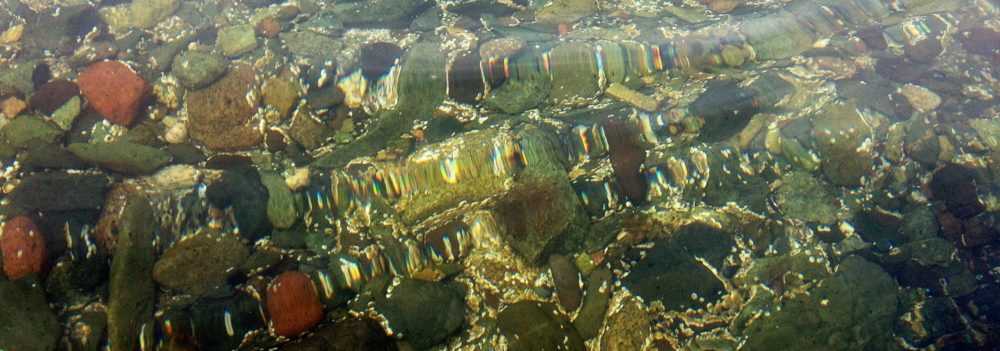Immune deck
[q]
Antigen – define[a] Anything that provokes an immune response. (GENeration of ANTIbodies)
[q]
Antigens – list[a] Anything from outside the body, such as a molecule in the plasma membrane of a foreign cell, portion of a microbe, cilia or flagella, chemicals made by foreign cells.
[q]
Pathogen – define[a] disease producing organism
[q]
Pathogen – list[a]bacteria, viruses, fungi, amoebae, protozoans and parasites such as worms
[q]
Bacteria – define[a] Cells that are much smaller than ours, with DNA dispersed rather than in a nucleus.
[q]
Virus – define[a]Tiny organisms smaller than bacteria that consist of a protein outer core, and an inner core of DNA or RNA
[q]
Bacteria – List diseases produced by[a] tuberculosis, urinary tract infections,strep throat, pneumonia
[q]
Viruses – List diseases produced by[a] influenza (flu), the common cold and AIDS
[q]
Innate defenses – describe[a] These defense mechanisms protect the body against a wide range of pathogens.
[q]
Adaptive defenses – describe[a]These defense mechanisms protect the body against specific pathogenic organisms.
[q]
Humoral immunity – function[a]This type of adaptive defense uses plasma proteins known as antibodies to attack and destroy a specific target in the body fluids.
[q]
Cellular immunity – function[a] This type of adaptive defense uses T cells to destroy infected, abnormal or cancerous body cells.
[q]
Innate defenses – list[a] skin, mucous membranes, NK cells, complement, inflammation, and interferons
[q]
Interferons – describe[a] These proteins are released by infected cells which signal uninfected cells to activate defenses to block a virus’s ability to replicate.
[q]
Complement – describe[a] These plasma proteins made by the liver circulate in an inactive state but which can be activated to destroy pathogens.
[q]
Adaptive defense – characteristics[a] specific, systemwide and have memory
[q]
What kind of cell is used in humoral immunity?[a]B cells
[q]
What kind of cell is used in cellular immunity?[a]killer T cells
[q]
Helper T Cells – function[a] These cells cause activation of killer T cells and B cells.
[q]
Killer T Cells – function[a]These cells leave the lymph node, enter circulation, and seeks and destroy infected/abnormal body cells.
[q]
Suppressor T Cells – function[a] These cells are responsible for turning adaptive immunity off once a pathogen/antigen has been eliminated.
[q]
B cells – function[a]These cells form a clonal population of plasma cells and begin producing antibodies.
[q]
Antibodies – define[a] These are proteins that bind to and destroy specific antigens.
[q]
Cytolysis – define[a] cell destruction
[q]
Memory B and T cells – function[a]These cells provide a much more rapid response should the pathogen enter the body again. (subsequent exposure)
[q]
Major Histocompatibility Complex (MHC) – function[a] This molecule marker on the membrane allows the immune system to recognize host cells (Cells of it’s own body).
[/qdeck]
Immune deck reversed
[q]
Which type of cells provide a much more rapid response should the pathogen enter the body again?[a]Memory B and T cells
[q]
Which term describes cell destruction?[a]Cytolysis
[q]
What are large proteins that bind to and destroy specific antigens?[a]Antibodies
[q]
Which type of cells form a clonal population of plasma cells and begin producing antibodies?[a]B cells
[q]
Which type of cells are responsible for turning adaptive immunity off once a pathogen/antigen has been eliminated?[a]Suppressor T Cells
[q]
Which type of cell leaves the lymph node, enters circulation, seeks and destroys infected/abnormal body cells?[a]Killer T Cells
[q]
Which type of cell causes activation of killer T cells and B cells?[a]Helper T Cells
[q]
Which type of adaptive defense allows killer T cells to destroy infected body cells to provide immunity?[a]cellular immunity
[q]
Which type of adaptive defense allows B cells to make antibodies to provide immunity?[a]humoral immunity
[q]
Which type of defense mechanisms are: specific, systemwide and have memory?[a]Adaptive defense (Immunity)
[q]
Which type of innate defenses are plasma proteins made by the liver which circulate in an inactive state but which can be activated to destroy pathogens?[a]Complement
[q]
Which kind of proteins are released by infected cells which signal uninfected cells to activate defenses to block a virus’s ability to replicate?[a]Interferons
[q]
Which type of defense mechanisms do the skin, mucous membranes, NK cells, complement, inflammation, and interferons contribute to?[a]Innate defenses
[q]
Which type of adaptive defense uses T cells to destroy infected, abnormal or cancerous body cells?[a]Cellular immunity
[q]
Which type of adaptive defense uses plasma proteins known as antibodies to attack and destroy a specific target in the body fluids?[a]Humoral immunity
[q]
Which type of defense mechanisms include humoral immunity and cellular immunity?[a]Adaptive defenses(Immunity)
[q]
Which type of defense mechanisms protect the body against specific pathogenic organisms?[a]Adaptive defenses(Immunity)
[q]
Which type of general defense mechanisms protect the body against a wide range of pathogens?[a]Innate (General) defenses
[q]
Which type of pathogen can cause influenza (flu), the common cold and AIDS?[a]Viruses
[q]
Which type of pathogen can cause tuberculosis, urinary tract infections,strep throat, and pneumonia?[a]Bacteria
[q]
What are tiny organisms smaller than bacteria that consist of a protein outer core, an inner core of DNA, RNA and enzymes?[a]Virus
[q]
What are cells that are much smaller than ours, lacking nuclei and mitochondria?[a]Bacteria
[q]
What are bacteria, viruses, fungi, amoebae, protozoans and parasites such as worms?[a]Pathogen
[q]
Which term describes a disease producing organism?[a]Pathogen
[q]
Which term describes anything that provokes an immune response?[a]Antigen
[/qdeck]
